The Sci-Fi Genre Hollywood Needs To Start Adapting Is Worth Your Attention
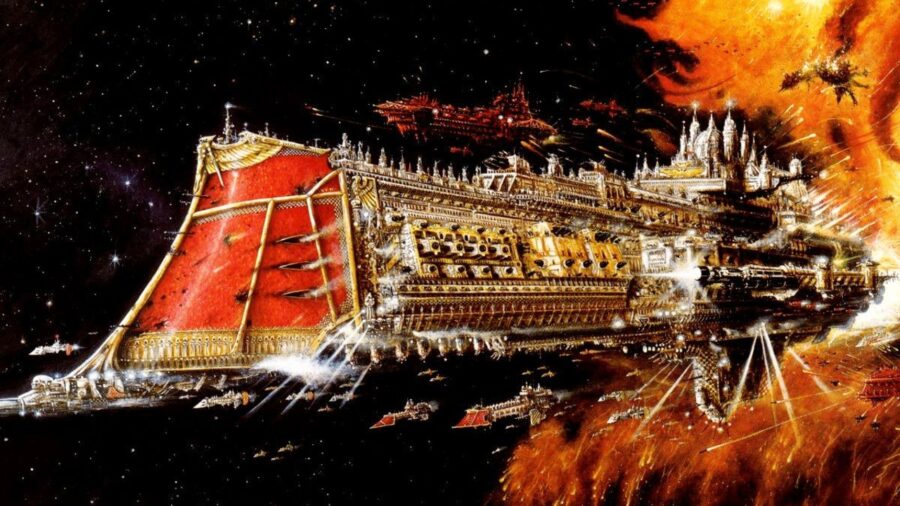
Science fiction comes in a variety of flavors, from the “soft science” stories focused on sociology and planetary politics to the “hard science” tales rooted in real scientific principles. There’s nothing wrong with either one, as they each have their own time and place, with the capability of telling amazing stories, but there’s another: military sci-fi. This branch of the genre combines sci-fi with military fiction and goes deep into war waged in the future.
Military sci-fi is also the most neglected of the three, with Hollywood seemingly too scared, or too cheap, to adapt any of the hundreds of best-selling novels that make up the bulk of the genre.
Existed As Long As Mainstream Sci-Fi

The roots of military sci-fi go back to the origins of science fiction, with H.G. Wells helping to pioneer the genre and, in the process, predict a large part of World War 1 with 1908’s The War in the Air. By applying the futurist thinking of a science fiction author to the field of military technology, the father of sci-fi wrote a prophetic story that both tantalized and horrified readers of the time. The utopian vision of Gene Roddenberry’s Star Trek is only one of many different ways to envision the future, and depicting a universe at war is no less valid.
The Forever War

Case in point: The Forever War by Joe Halderman, released in 1974, years after Star Trek: The Original Series popularized the utopian future. Playing with the concept of time dilation, Halderman’s story follows one soldier through thousands of years of warfare (four years of service thanks to time dilation) against the alien Taurians. As with most military sci-fi, the story seems to glorify war on the surface, but it becomes clear that it’s more interested in how war dehumanizes everyone.
For a story written 50 years ago, it’s more complex than most of the sci-fi Hollywood churns out today; looking at you Rebel Moon.
Master And Commander Of The Far Side Of The Galaxy
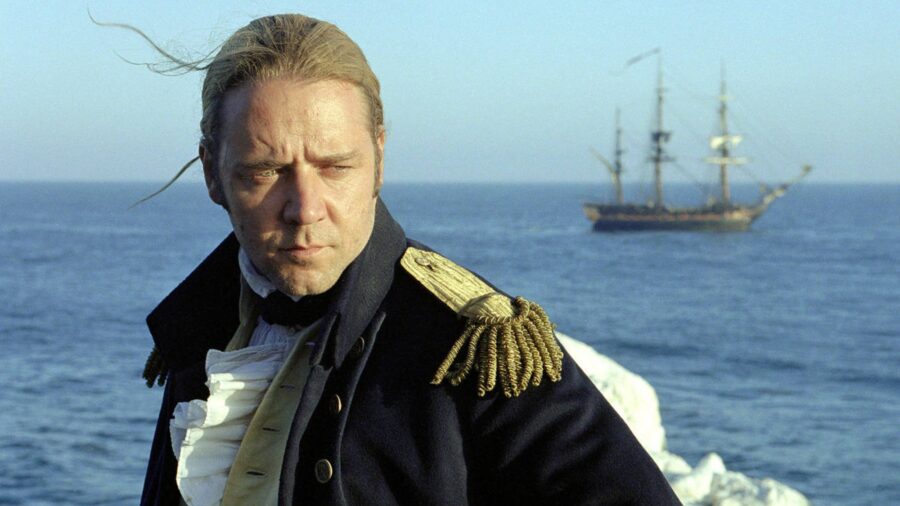
One of the best military sci-fi series that could be summed up as Master and Commander in space is the Honorverse by David Weber. Starring Honor Harrington, a female twist on Horatio Hornblower, the series slowly goes over her military career as she rises through the ranks, navigating a complex web of politics, factions, and shifting allegiances over the course of highly detailed military engagements.
Given how Russel Crowe’s Master and Commander of the Far Side of the World failed to launch a franchise, it’s understandable why the similarly themed Honorverse hasn’t been adapted, but I think this has the potential to blow up big if properly supported.
A Brief Moment In The 90s
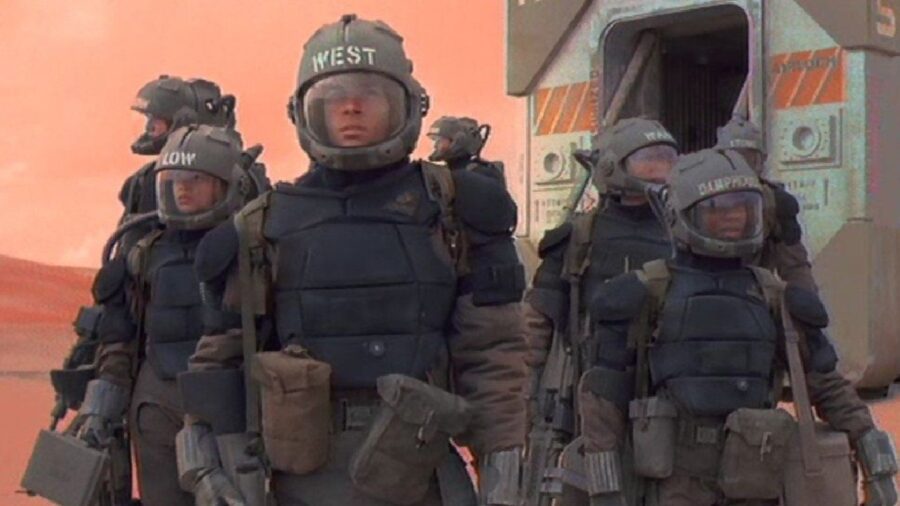
There was a brief moment in the 90s when military sci-fi was being adapted, but the failure of Starship Troopers to light the box office on fire seemingly cooled Hollywood’s interests. While the movie got the public’s attention, quietly on television, Space: Above and Beyond was proving that even original military sci-fi could work. The story of the Wildcards squadron finding themselves on the front line of war was canceled too soon, only lasting for one season, but it remains a cult classic today with a lively fanbase.
In The Grim Darkness Of The Far Future
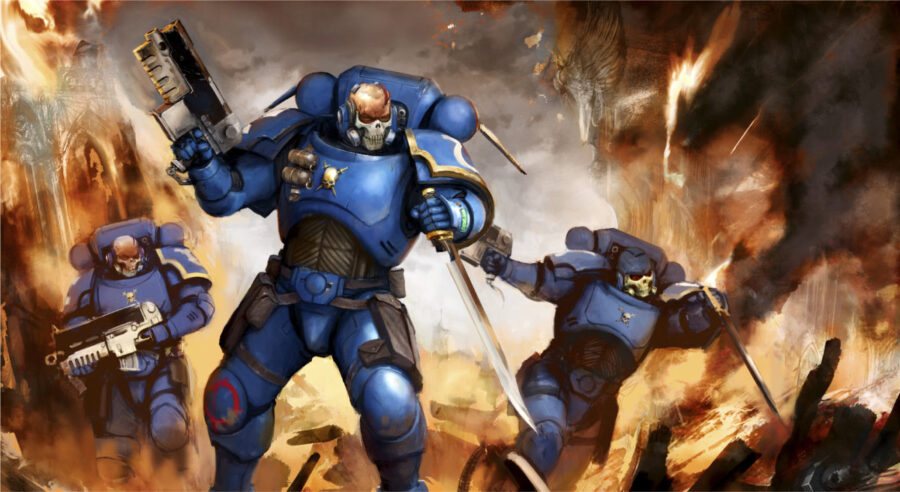
The biggest example of Hollywood bringing military sci-fi to life is yet to come, thanks entirely to Henry Cavill. The former Superman somehow convinced Amazon to bankroll a Warhammer 40,000 series, bringing to life the darkest military sci-fi franchise ever created. In the world of Warhammer 40,000, there are no good guys, with humanity united behind The Emperor against the Xenos (every other species), behind the might of the Space Marines (Adeptus Astartes) and the Astra Militarum.
War Without End

Based on the tabletop game played with models, the world of Games Workshop’s Warhammer 40k has been a fertile ground for military sci-fi, giving us the Gaunt’s Ghosts series by Dan Abnett and the Ciaphus Cian series by Alex Stewart (writing as Sandy Mitchell).
There’s even the entire Horus Hersey series depicting Horus’s rebellion against the Emperor, which is a prequel for the world of Warhammer 40k. From solo excursions into derelict Space Hulks to the literal universe-shattering of the Fall of Cadia, this franchise could provide countless new series and movies for Hollywood if, again, the studios would dare do something different.
Bored Of Hollywood Sci-Fi
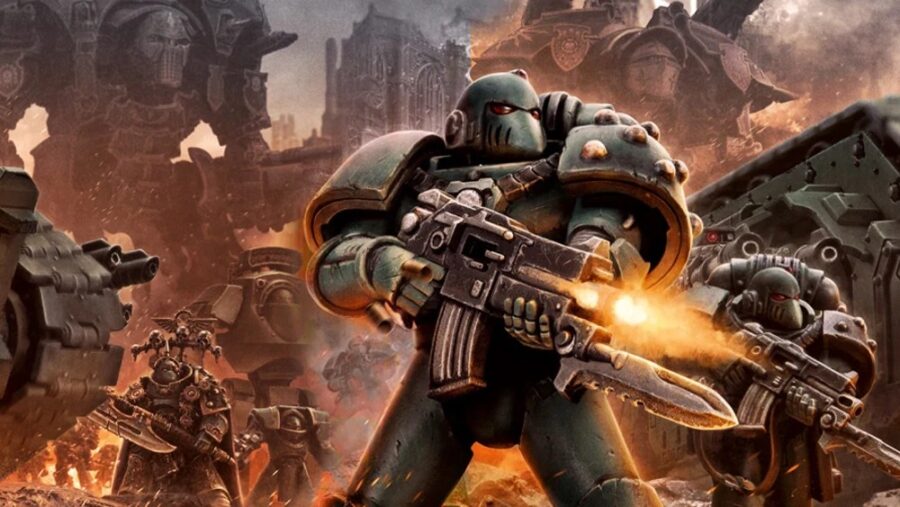
I, for one, can’t wait for Cavill’s Warhammer 40k series, even if I expect it to be a fairly generic sci-fi story focused on the Ultramarines (and not the real heroes of the setting, the Alpha Legion), but it’s at least different. I’m bored of the world of Star Trek, in which war is an anomaly, and no Star Wars story has ever shown halfway decent military tactics. It’s time for Hollywood to get creative and dive into a different, darker side of science fiction that’s no less valid than what we’ve been watching for decades.












